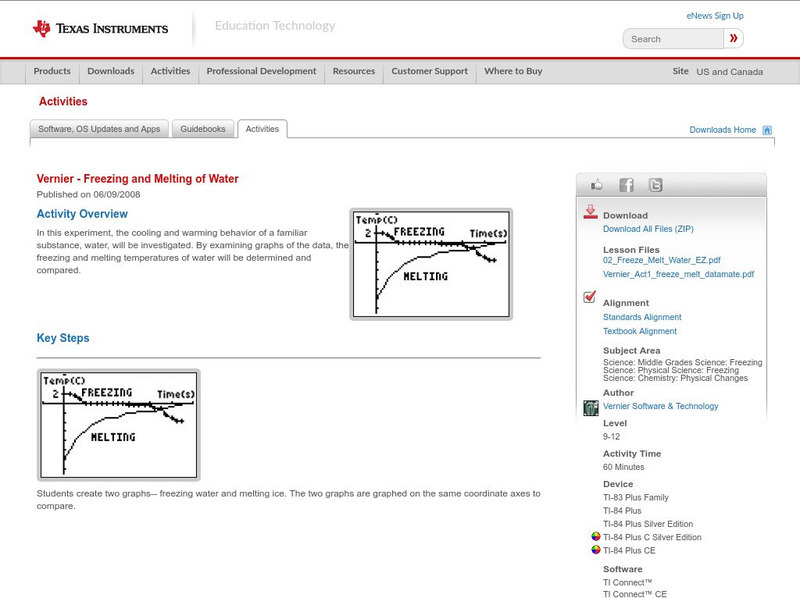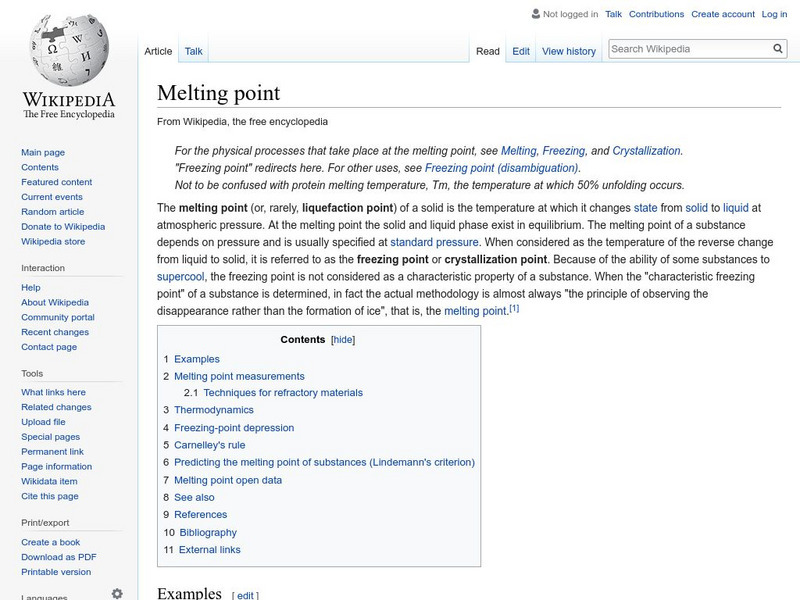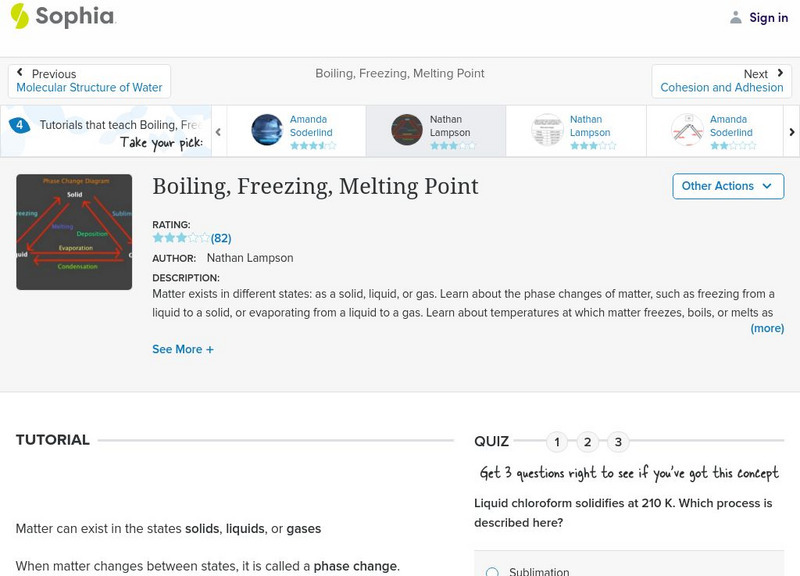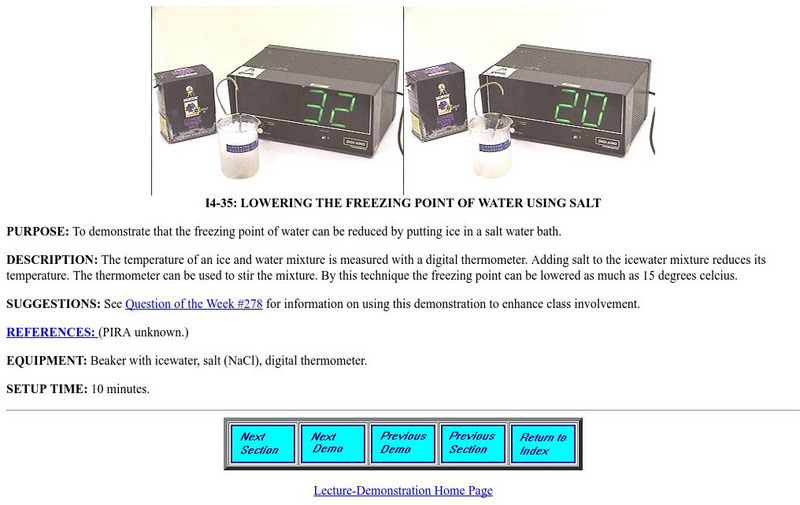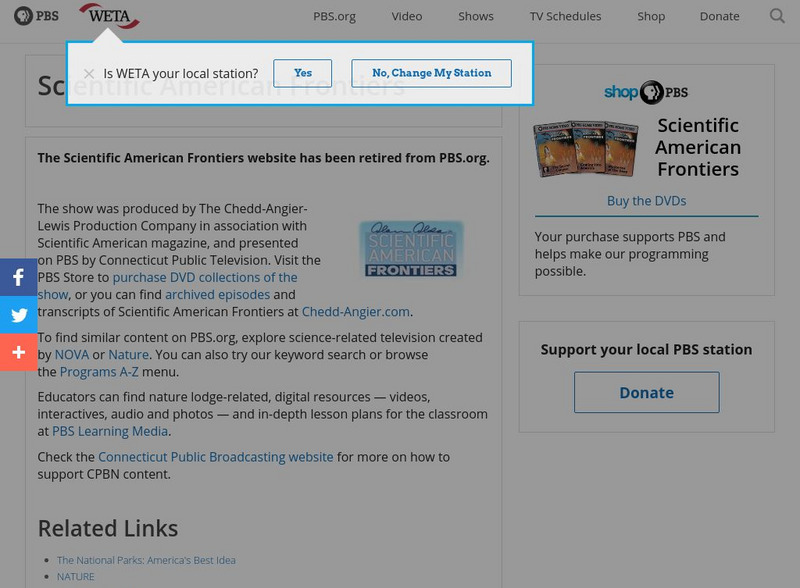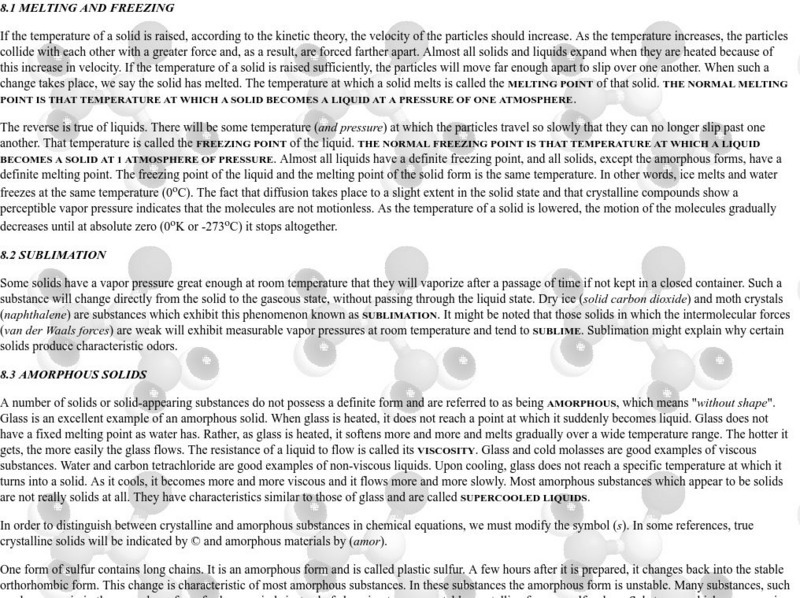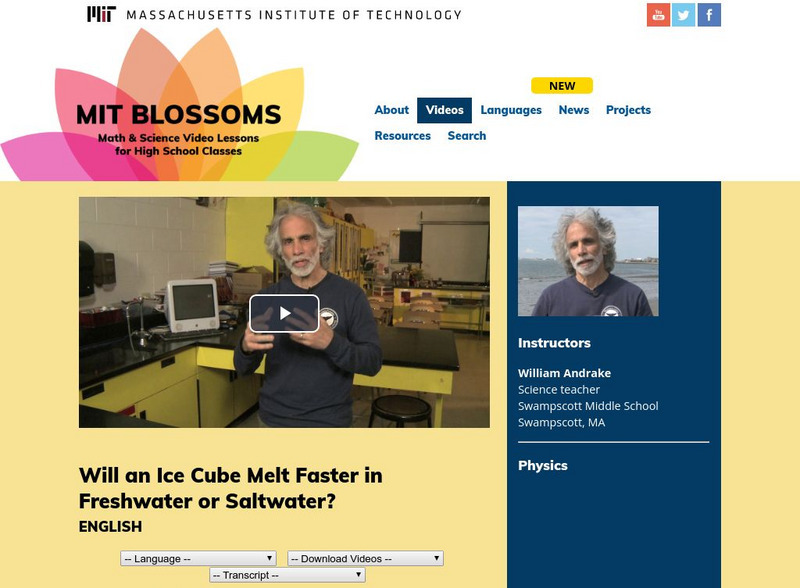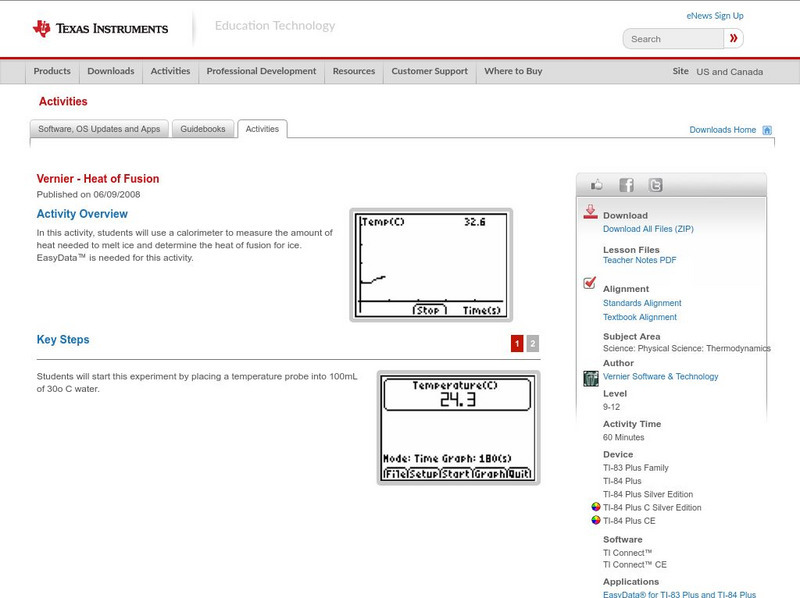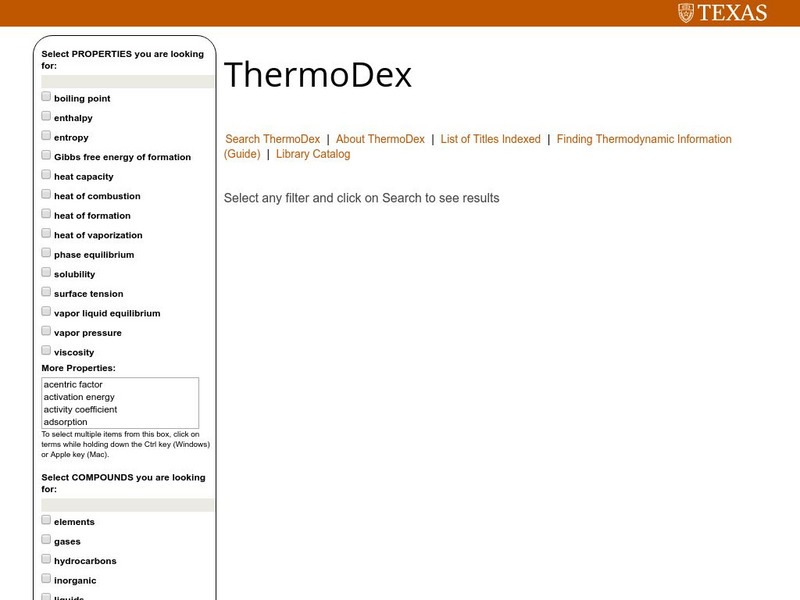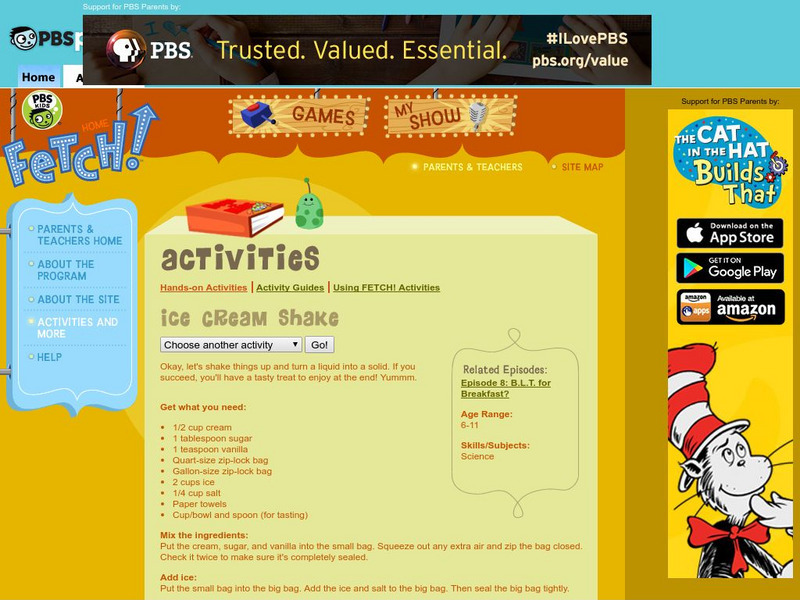Texas Instruments
Texas Instruments: Freezing and Melting of Water
Freezing temperature, the temperature at which a substance turns from liquid to solid, and melting temperature, the temperature at which a substance turns from a solid to a liquid, are characteristic physical properties. In this...
Khan Academy
Khan Academy: Melting Point and Thermodynamics of Double Stranded Dna
Read the passage and study the graphics concerning Melting Point and Thermodynamics of Double-Stranded DNA and then answer the five question quiz.
Other
Science Alive: Melting Point Simulation
Percy Julian and Josef Pikl used the fact that melting point-the temperature at which a substance changes from a solid to a liquid-is a characteristic property of a substance to prove that the British chemist Robert Robinson could not...
Wikimedia
Wikipedia: Melting Point
Wikipedia offers a brief description of the term, "Melting point," including hyperlinked terms.
Sophia Learning
Sophia: Boiling, Freezing, Melting Point: Lesson 2
This lesson will introduce the phase changes that occur at the boiling, freezing, and melting points. It is 2 of 4 in the series titled "Boiling, Freezing, Melting Point."
Sophia Learning
Sophia: Boiling, Freezing, Melting Point: Lesson 4
This lesson will introduce the phase changes that occur at the boiling, freezing, and melting points. It is 4 of 4 in the series titled "Boiling, Freezing, Melting Point."
Sophia Learning
Sophia: Boiling, Freezing, Melting Point: Lesson 1
This lesson will introduce the phase changes that occur at the boiling, freezing, and melting points. It is 1 of 4 in the series titled "Boiling, Freezing, Melting Point."
CK-12 Foundation
Ck 12: Physical Science: Melting
[Free Registration/Login may be required to access all resource tools.] What happens to matter when it melts and the definition of melting point.
CK-12 Foundation
Ck 12: Physical Science: Freezing
[Free Registration/Login may be required to access all resource tools.] Explains what happens to matter when it freezes and the definition of freezing point.
American Chemical Society
Middle School Chemistry: Changing State Melting
Explore the phase change that occurs when ice is melting.
University of Maryland
Lowering the Freezing Point of Water Using Salt
A page from the University of Maryland Physics Lecture Demonstration Facility. Provides directions for a teacher demonstration of the effect of an ionic solute upon the freezing point of water. Shows apparatus and set-up; provides...
CK-12 Foundation
Ck 12: Chemistry Simulation: Salty Roads
[Free Registration/Login Required] Explore how solutes can keep roads clear of ice in the winter by learning how different types and concentrations of a solute affect the freezing point of a solution.
E-learning for Kids
E Learning for Kids: Science: Kaap De Goede Hoop: Why Do Changes in State Take Place?
Zander is on a camping trip. Join him, and help him learn about boiling and melting points.
PBS
Pbs Teachers: Going to Extremes: Frozen Alive
Explore survival strategies of animals in freezing climates. Investigate the role of glucose (sugar solution) when used as an antifreeze and the relationship between temperature and metabolism.
Other
Third Millenium Online: Melting and Freezing
The concepts of melting point and freezing point are explained on this site.
Massachusetts Institute of Technology
Mit: Blossoms: Will an Ice Cube Melt Faster in Freshwater or Saltwater?
Engage students in the study of the ocean and saltwater with these activities. Students will see that saltwater has different physical properties than freshwater - mainly density. This lesson can serve as a springboard into other...
Texas Instruments
Texas Instruments: How Low Can You Go?
In this activity, Students can use an EasyTemp temperature probe to determine the normal melting temperature of ice. They will then study how the addition of salt to the melting ice affects its melting temperature. They will finally...
Texas Instruments
Texas Instruments: Heat of Fusion
In this activity, students can use a calorimeter to measure the amount of heat needed to melt ice and determine the heat of fusion for ice. EasyData is needed for this activity.
Environmental Chemistry
Periodic Table of Elements: Gallium
A very detailed look at the element Gallium, a member of the Boron Group.
Environmental Chemistry
Periodic Table of Elements: Indium
A very detailed look at the element Indium, a member of the Boron Group.
University of Maryland
University of Maryland: Regelation: Ice Under Pressure
A page from the University of Maryland Physics Lecture Demonstration Facility. Provides directions for a teacher demonstration on the phenomenon of regelation. Shows apparatus and set-up; provides suggestions. Easily adaptable as a...
University of Texas at Austin
Thermo Dex:index of Selected Thermodynamic Data Handbooks
Do you need to know a specific value of a specific quantity for any given substance? If so, this is the place. Find the heat capacity, heats of vaporization and fusion, and much more from this page.
PBS
Pbs Teachers: Ice Cream Shake
Investigate states of matter while making ice cream. Explore how to turn a liquid into a solid by removing heat energy.
E-learning for Kids
E Learning for Kids: Science: Loch Ness: What Happens When Solids and Liquids Are Heated or Cooled?
Students will look at what happens to different types of matter when they have a change of state.
